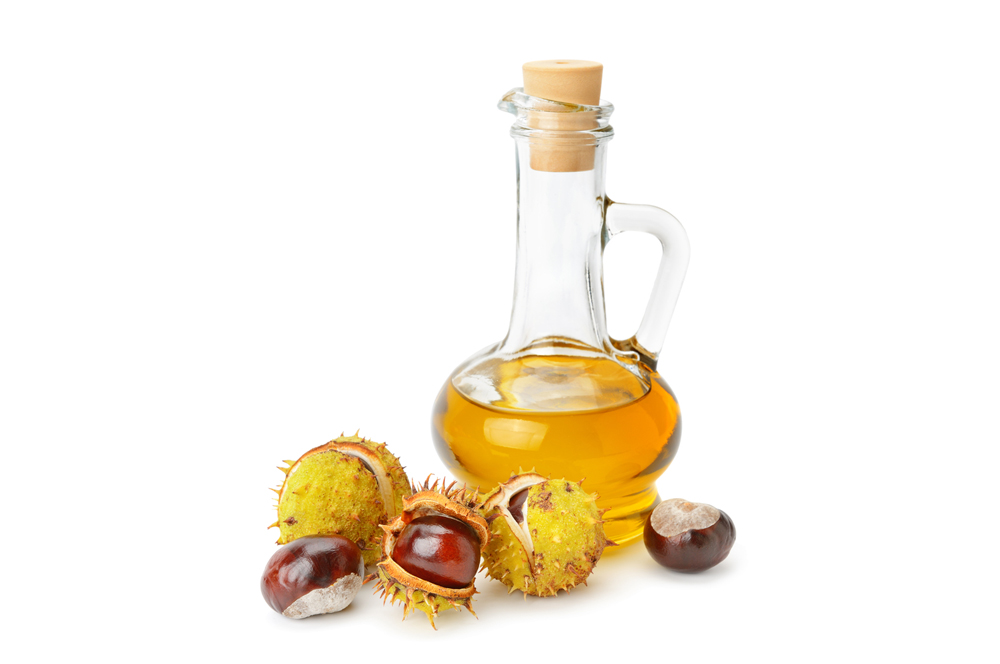
Aesculus hippocastanum
Anti-inflammatory, Astringent, Anti-rheumatic
2% - 10%
Horse chestnut is a plant. Its seed, bark, flower, and leaves are used to make medicine. Horse chestnut contains significant amounts of a poison called esculin and can cause death if eaten raw. Horse chestnut leaf is used for eczema, menstrual pain, soft tissue swelling from bone fracture and sprains, cough, arthritis, and joint pain. Horse chestnut branch bark is used for malaria and dysentery. Some people apply horse chestnut branch bark to the skin for lupus and skin ulcers. Horse chestnut contains a substance that thins the blood. It also makes it harder for fluid to leak out of veins and capillaries and weakly promotes fluid loss through the urine to help prevent water retention. Chestnut has radical scavenging, anti-bacterial and anti-viral activities. More than that, some of the compounds (including one called proanthocyanidin A2) in horse chestnut have wound healing, antioxidant, anti-inflammatory and anti-enzymatic properties. Horse chestnut is often recommended as an excellent anti-aging toner thanks to its antioxidant effects. This is because the extract of the horse chestnut promotes circulation and aids in toning and strengthening fragile veins &capillaries.

